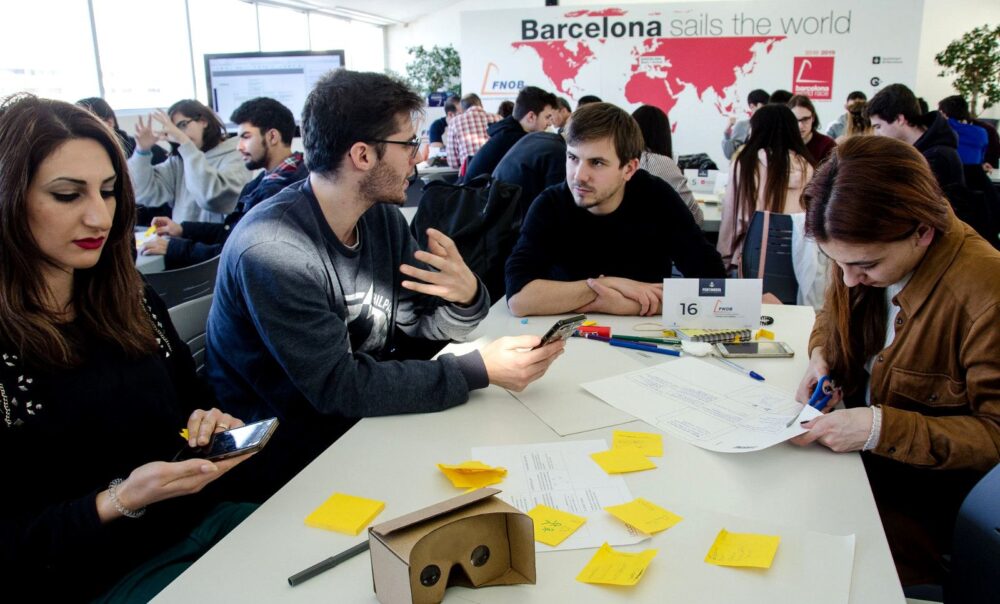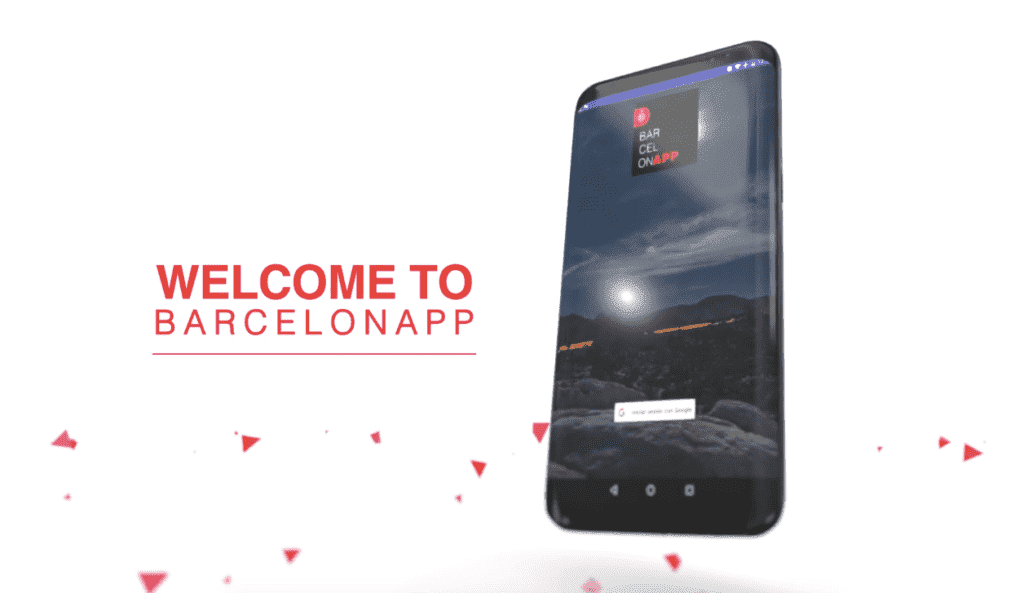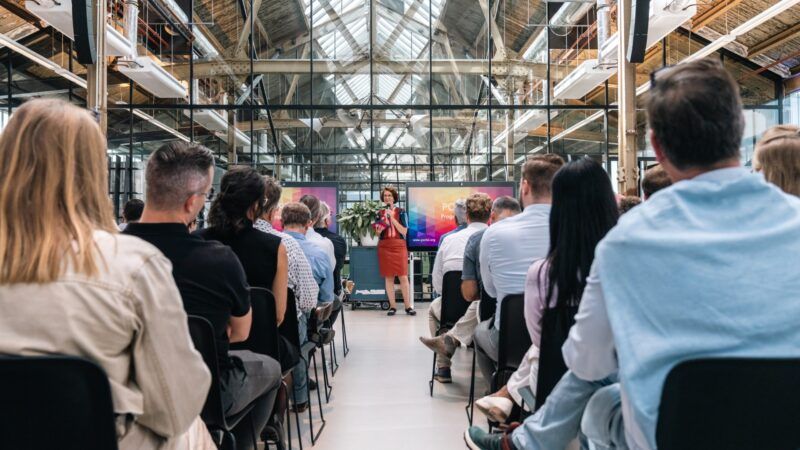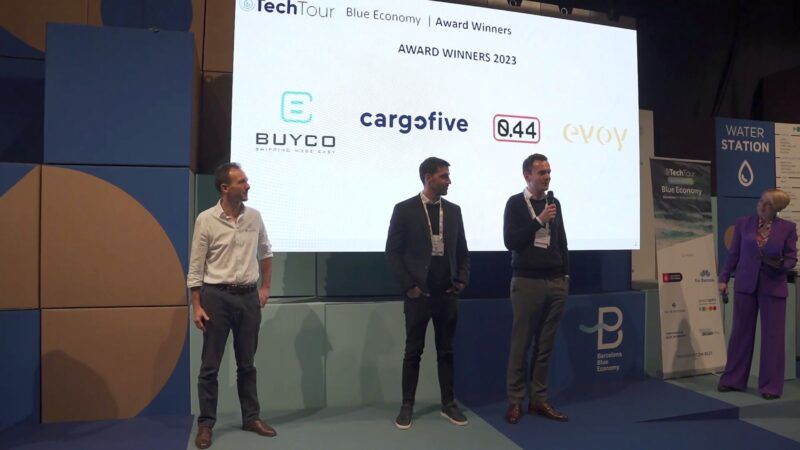 Estudiantes de FP en uno de los 'workshops' que forman parte del proyecto PortInnova. [Imagen de Port de Barcelona]
Estudiantes de FP en uno de los 'workshops' que forman parte del proyecto PortInnova. [Imagen de Port de Barcelona]
PortInnova: Empowering Emerging Talent In Vocational Education and Training
Institutions, companies and the educational sector are all grappling with major challenges such as artificial intelligence, robotics and digitalisation, which are transforming the market. How can ports contribute to the development of talent and innovation? Can and should ports influence the world of education?
Posted on
07.05.2018
 Estudiantes de FP en uno de los 'workshops' que forman parte del proyecto PortInnova. [Imagen de Port de Barcelona]
Estudiantes de FP en uno de los 'workshops' que forman parte del proyecto PortInnova. [Imagen de Port de Barcelona]
PortInnova is a hackathon where the port of Barcelona and a range of companies in the port sector are posing challenges to vocational education students to develop original solutions based on technology and innovation.
The project is also an opportunity for companies to access talent and develop innovative projects. In turn, it gives students and schools the possibility of gaining a better understanding of what companies need, solving real problems and displaying their talent. The results are extremely encouraging.
PortInnova, which has now celebrated its third edition, is transforming the Port of Barcelona into a meeting point among companies, schools and the city in general to develop high-impact projects which affect both how the city works and its urban environment. More than developing solutions for the port factors, PortInnova is primarily envisioned as a partnership to develop educational competencies through service learning (the method that consists in learning by providing the community with a service). Furthermore, it seeks to showcase students’ talent and capacities.
This latest edition of PortInnova, which concluded last June, set four challenges stemming from the major strands in the port’s innovation model, each of them associated with an organisation or company.
The first challenge, which was chosen by the port itself, is associated with the environment. It suggested developing tools which use remote systems or artificial intelligence to collect the floating waste in marinas and yacht clubs.
The mobility challenge, which was posed by the Barcelona Town Hall, asked students to find a solution to “mitigate the crowds of cruise ship passengers in the areas adjacent to the port” by plugging them into the public transport network.
The logistics challenge, which was launched by the Hutchison Ports BEST container terminal, sought to explore blockchain technology to optimise supply chains and make them more secure.
Finally, the Ocean Navigation Foundation of Barcelona posed the social challenge: to develop solutions that would help spread nautical sports.
These challenges were posed students in industrial-geared vocational education programmes in October 2017 to. After several creativity workshops held in the Port of Barcelona and months of development, five of the projects were chosen as the finalists.
- DescuVela is an application for mobile devices which seeks to spark an interest in yachting by using virtual reality as a means to teach the basics of this sport, as well as to realistically convey the sensations felt onboard a yacht. This project was developed by the students of Institut Poblenou.
- PortNet is an application to collaboratively manage incidents in the port, where the more than 41,000 port employees can share images and the geolocation of any environmental problem that they detect in the facilities. It is a simple, quick way of communicating with the port to enable quick responses to possible incidents that could affect the environment. It is a proposal from the students in the Sales and Commercial Spaces Management programme in conjunction with those in the Development of Mobile Applications programme at the Institut Poblenou.
- iVIC PortChain is a proposed system for managing the secure transmission of information and documentation among the different users of the port using blockchain technology. The use of this system, according to the drivers behind the project, would guarantee transparency, security and traceability of the data and information that is regularly exchanged among port users, which would make it possible for all the members of the logistics team to track the status of the cargo. This intriguing project was developed by a team of students from the Institut de Vic.
- Finally, Hi BCN! was created with the objective of managing the flow of cruise ship passengers when they disembark in the port of Barcelona in order to decongest the city centre and encourage sustainable mobility. Following a participative model, alternative tourist routes were designed in conjunction with the Neighbourhood Councils with the goal of funnelling the passengers to different areas in the city. As in the case of BarcelonApp (the winning project, which we describe below), the amount of time the user is staying in the city is one of the parameters used when proposing any given route. This project is the brainchild of a group of students from Institut Poblenou.







